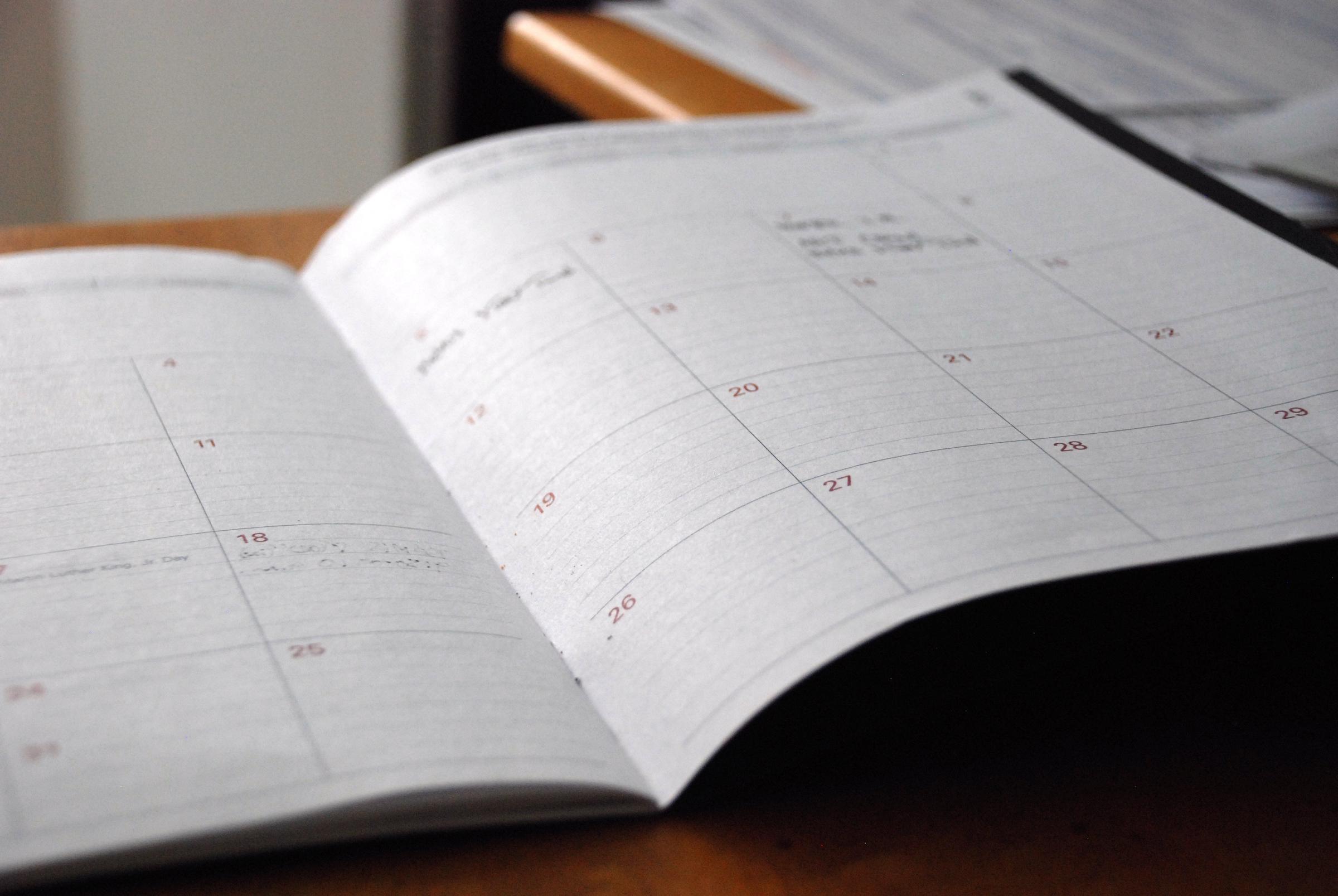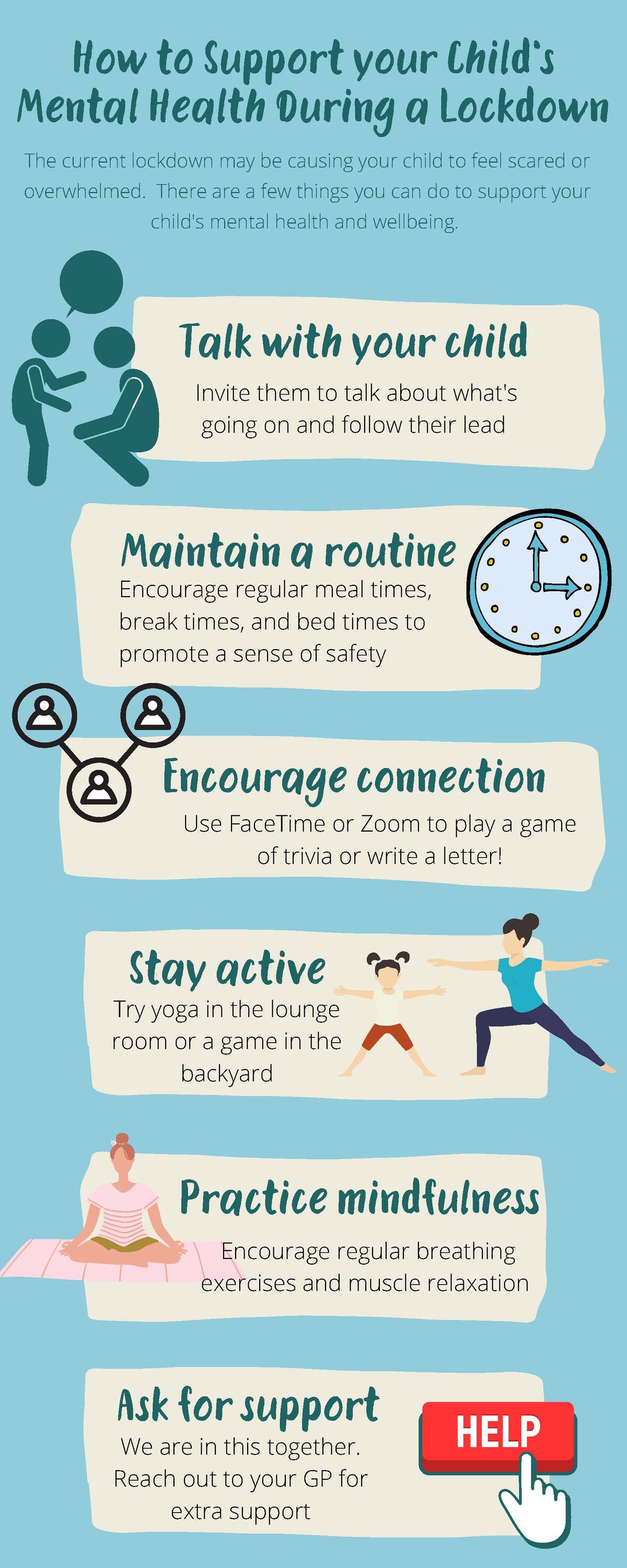Lockdown is causing significant and unexpected disruptions to daily life, with restrictions impacting the way we work, learn, and socialise. Covid-19 has imposed a sense of uncertainty and fear among our young people. Schools have been closed, extracurricular activities have been cancelled, and social interactions are occurring via online platforms. Our young people are experiencing inconsistent and potentially prolonged periods of physical isolation from their friends, teachers, extended family, and community networks which can place them at risk of experiencing mental health problems. This becomes increasingly important when we view childhood and adolescence as a period of development where significant changes are already taking place. So how can we support our young people during periods of lockdown?
- Talk to your child. Invite your child to talk about what’s going on and follow their lead. Build their emotional vocabulary by supporting them to label their emotions and how they experience emotions in their body.
- Maintain a routine. A good routine can promote a sense of safety and security which is crucial during times of uncertainty. Encourage your child to follow the routine as if it were a regular school day.
- Encourage your child to connect with others. It is common for children to feel lonely or isolated when they can’t physically spend time with others. Try video chats with extended family, games with friends via Zoom, or even letter writing.
- Stay active. Physical activity releases chemicals in the brain, like Serotonin, which is great for lifting our mood. You can do yoga in the loungeroom, set up a game of cricket in the backyard, or have your children create their own game.
- Practice mindfulness. Mindfulness is about being in the present moment. It teaches children to access their emotions (even the ones that make them feel uncomfortable) and to be appreciative and grateful for what they have. You might like to ask your child to place their hand on their chest to feel their heartbeat or to squeeze and relax the large muscles in their body.
- Ask for support. Every lockdown is unique and your child will respond in their own way. If you are concerned your child is displaying high levels of anxiety or stress, contact your GP.


